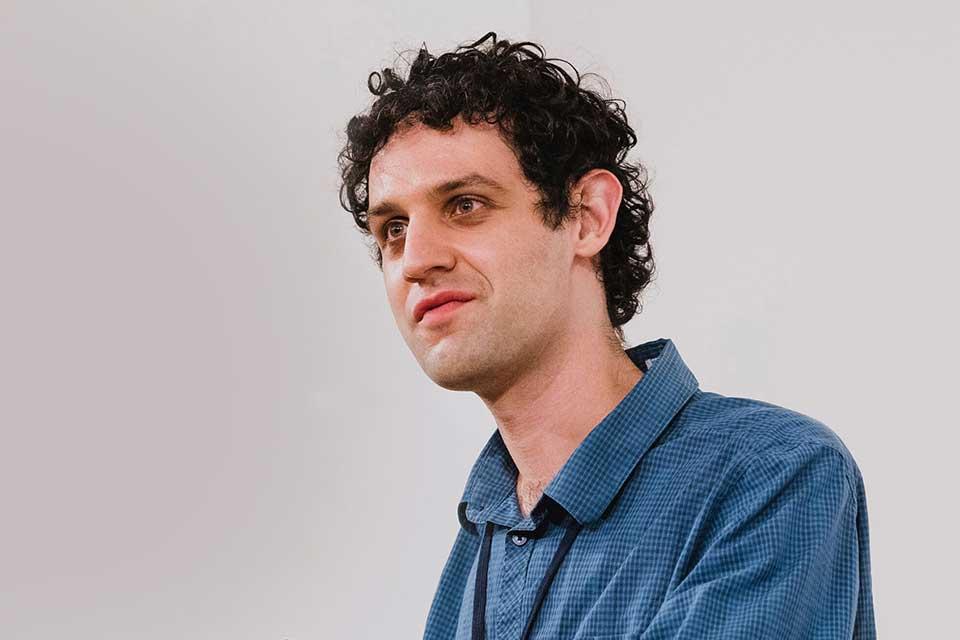Dr Yonadav Barry Ginat, Leverhulme-Peierls Fellow at the Rudolf Peierls Centre for Theoretical Physics at the Department of Physics, has been awarded the International Astronomical Union’s PhD Prize for Division D (high energy phenomena and fundamental physics). The award recognises remarkable PhD theses from the previous year.
Dr Ginat’s thesis, ‘Gravitational Waves and Non-Linear Phenomena in Gravitational Astrophysics’ investigates dynamical processes related to gravitational-wave sources. One example is the three-body problem, which is the interaction between a binary star system, for instance two black holes, and a third, lone black hole. While their motion is known to be chaotic and therefore essentially random, in his thesis Dr Ginat derived a formula for the probability distribution for this random behaviour – for the intermediate and final states of a three-body system. This showed that it is highly probable that the final binary will be tighter than the original one, and he used it to derive the probability that a three-body interaction would end up with a black hole binary tight enough, that it will release its energy in gravitational waves and merge. In fact, three-body interactions are ubiquitous in any dynamical creation of binary black hole coalescences. Dr Ginat also studied the probability distribution of the gravitational-wave background fluctuations: going from individual sources to the cumulative signal of all gravitational-wave sources taken together. This distribution can be modelled as a random walk, with each wave seen as a complex number with an amplitude and a phase, ie one step of the walk. Using this formalism, he discovered general properties of this background, which remain true regardless of the specific properties of the sources.
As a laureate, Dr Ginat is invited to the IAU’s next general assembly that will take place in Cape Town in the summer where he will be invited to present his thesis work.
‘I am honoured that the IAU recognised my PhD work for this award,’ he comments. ‘I enjoyed doing theoretical astrophysics in my doctoral studies and am very happy to receive this prize.’

